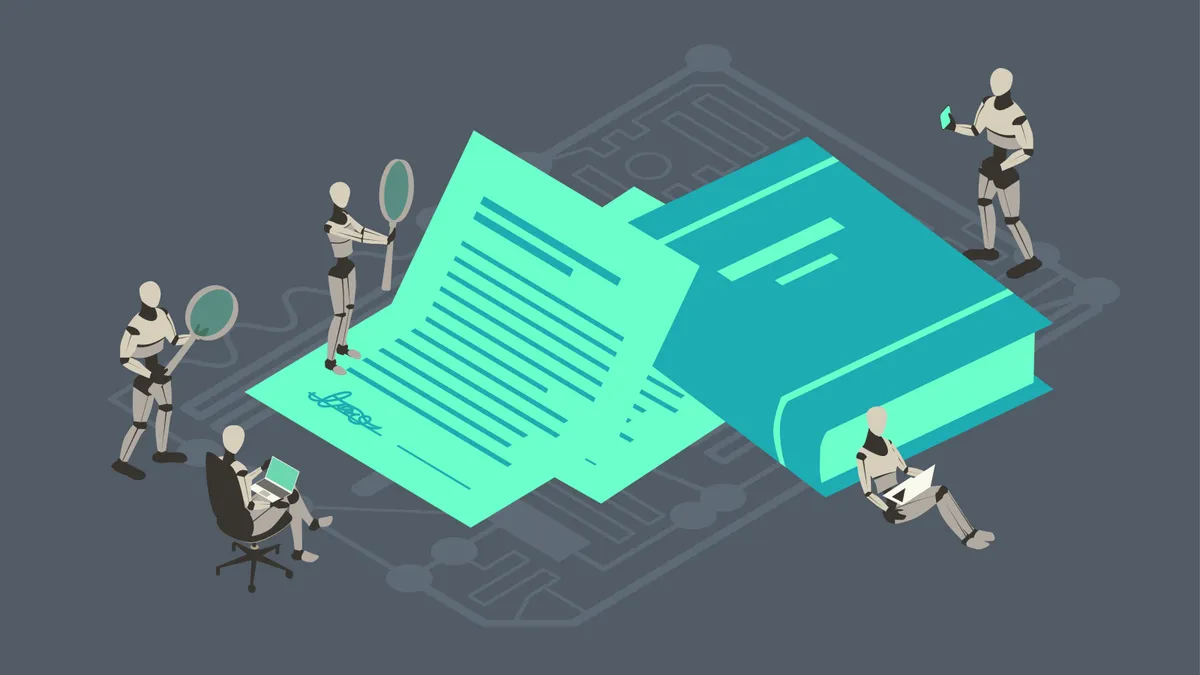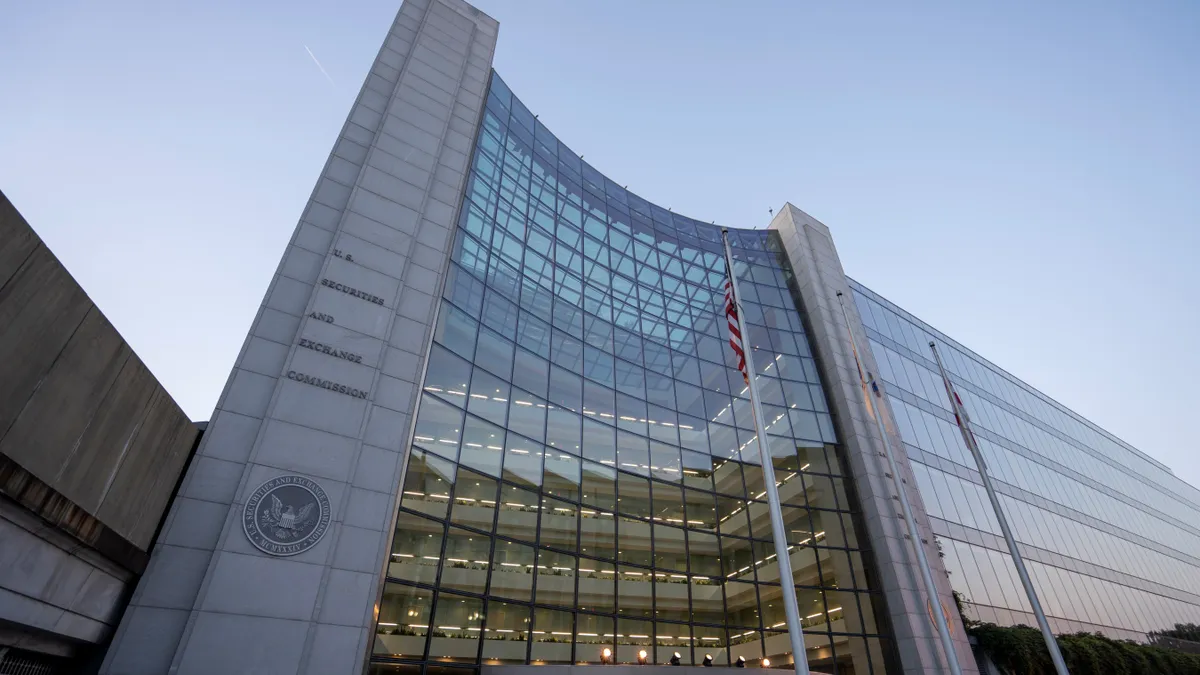When Shopify last week tried to pull back the curtain on the company suing it for infringement, it was the latest effort to force disclosure of litigation funders that critics say are distorting the patent world.
In 2020, some 30% of patent infringement lawsuits were backed by litigation funders—companies that amass funds from outside investors to pay other companies’ litigation expenses in exchange for a share of the money that’s awarded in the suit, if any. That’s up from virtually zero 15 years ago, a Texas A&M University study says.
“This has contributed to a growth in litigation for litigation’s sake, turning our courts into another speculative money making vehicle,” Unified Patents says in an analysis. The organization is funded by companies that are often defendants in infringement cases.
Critics say the rise of litigation funders is especially a problem in the patent world because it’s providing fuel for so-called patent assertion entities or patent monetizers.
These entities, also known colloquially as patent trolls, file infringement lawsuits that are forcing companies to divert resources away from their business to defend themselves for using technology that, in some cases, are based on their own patents that were later bought on the open market by trolls.
“This growth in [patent] litigation drains resources … and creates a hidden tax on innovation, since operating companies and the courts are then forced to spend costly resources to defend against patent trolls funded by Wall Street—and worse, foreign private sovereign nation funds and other shadowy investors who prefer to remain hidden,” says Unified Patents.
The U.S. Chamber of Commerce is a big supporter of companies doing what Shopify is doing, which is trying to force patent assertion entities to disclose their backers. By letting some sunshine into the process, it’s hoped, courts can process lawsuits with merit quickly while those filed to maximize profits decrease.
“The usage of third-party litigation funding as a form of investment has seeped into all facets of the American civil litigation system,” the Chamber of Commerce said in a report released last month. “Although it is impossible to measure the precise annual dollar amount invested in U.S. litigation because of the lack of transparency in the industry, ‘one recent article conservatively estimated this figure around $2.3 billion,’ while another source put it at $5 billion.”
Some analysts label the sunshine effort anti-small business because it forces patent-owners without deep pockets into expensive, time-consuming and resource-intensive discovery that ultimately, they argue, is unnecessary. It’s unnecessary because the entity funding the litigation shouldn’t have any bearing on the merits of a case.
“Deep-pocketed litigants have treated the growing use of litigation finance as a pretext to draw out the discovery process by seeking disclosure of confidential financing arrangements,” Laina Hammond and Wendie Childress of litigation funder Validity say in a 2019 analysis, when funders started targeting the patent sector.
Impact seen
By some measure, the sunshine effort is having an impact.
Creekview IP, a patent assertion entity, voluntarily dismissed four infringement lawsuits last year after Chief Judge Colm Connolly of the U.S. District Court for the District of Delaware directed it to disclose its financial backers.
The judge had earlier issued a standing order directing all plaintiffs in cases he oversees to disclose any parties with a financial interest in a litigant. When Connolly sought to compel Creekview to comply, Creekview walked away.
“The plaintiffs voluntary dismissed the cases after the order was issued,” Robert Colletti and Nisha Gera of Haug Partners said in an analysis.
Other would-be plaintiffs are avoiding Delaware altogether because of the pressure to reveal funders. “Patent holders flee Delaware as disclosure orders continue to bite,” IAM reported.
More jurisdictions are following Connolly’s lead.
In Louisiana last month, a bill to force disclosure of litigation funders passed the state Senate and is under consideration in the House. Among the reasons for forcing disclosure, the bill says, is concern that monetization, not righting a wrong, is driving cases. Investors from outside the United States is another concern.
“Investments are being made by foreign hedge funds, private equity funds, and in some cases, sovereign wealth funds connected to hostile governments,” the Louisiana bill’s preamble says. “The use of third-party litigation financing by agents of hostile governments can threaten the integrity of our national security by providing access to technologically competitive information, trade secrets, and other confidential information.”
If it passes, the state would join Wisconsin, New Jersey and the District of Columbia among other jurisdictions that require disclosure.
Pushback
Litigation funders and their industry group, the International Litigation Finance Association (ILFA), say the argument that outside funders encourage meritless lawsuits is a myth; funders only make money if they win, and that means winning on the merits.
They’re “providing capital on a non-recourse basis over a long period of time,” Gary Barnett, ILFA CEO, told Legal Dive last year. “And so they have to be rational actors. They have to be highly selective in the cases that they choose or they risk losing all their capital.”
“Litigation funders engage with claimants who have meritorious positions in IP litigation matters,” ILFA said in a statement emailed to Legal Dive. “They engage in strict due diligence and take on cases in which the plaintiffs have a legitimate claim to intellectual property. [Well-resourced defendants] use their significant resources in a … legal battle until the less-resourced startup/tech company runs out of money and is forced to settle for pennies on the dollar. Legal finance providers are there to help level the playing field and allow these smaller companies defend their patents.”
Adam Mortara, a trial attorney in Nashville and a former clerk to U.S. Supreme Court Justice Clarence Thomas, has said the concern over funders stems not from concern over frivolous cases but from deep-pocketed companies not wanting to face lawsuits from smaller rivals that otherwise wouldn’t have the means to challenge them.
“Corporations might not like litigation funding because they generally don’t need it and get sued by the people who use it,” Mortara has said.
Latest effort
Shopify’s motion earlier this month to compel disclosure of who’s financially backing the infringement litigation against it comes after it tried, and failed, to get Lower48 IP, the patent assertion company suing it, to disclose its funders.
“Lower48 refused to provide it information about third-party interests in the case,” Reuters reported.
Shopify said it needs the information to ensure the case doesn’t raise conflicts of interest or the appearance of impropriety. It alleged that IP Edge, the most active funder in the patent space, is behind the case.
“The Court will be unable to determine whether a conflict exists … without an independent examination of the facts, including any relevant information regarding third-party interests in this action,” Shopify says in its motion.
Lower48 sued Shopify last year in the U.S. District Court for the Western District of Texas on the grounds it infringed patents the company owns related to its use of a computer language called GraphQL. U.S. District Judge David Ezra hasn’t ruled on the motion yet.
IP Edge didn’t immediately respond to requests for comment.
[Editor’s note. An earlier version of the story used an image depicting Spotify, not Shopify.]



















